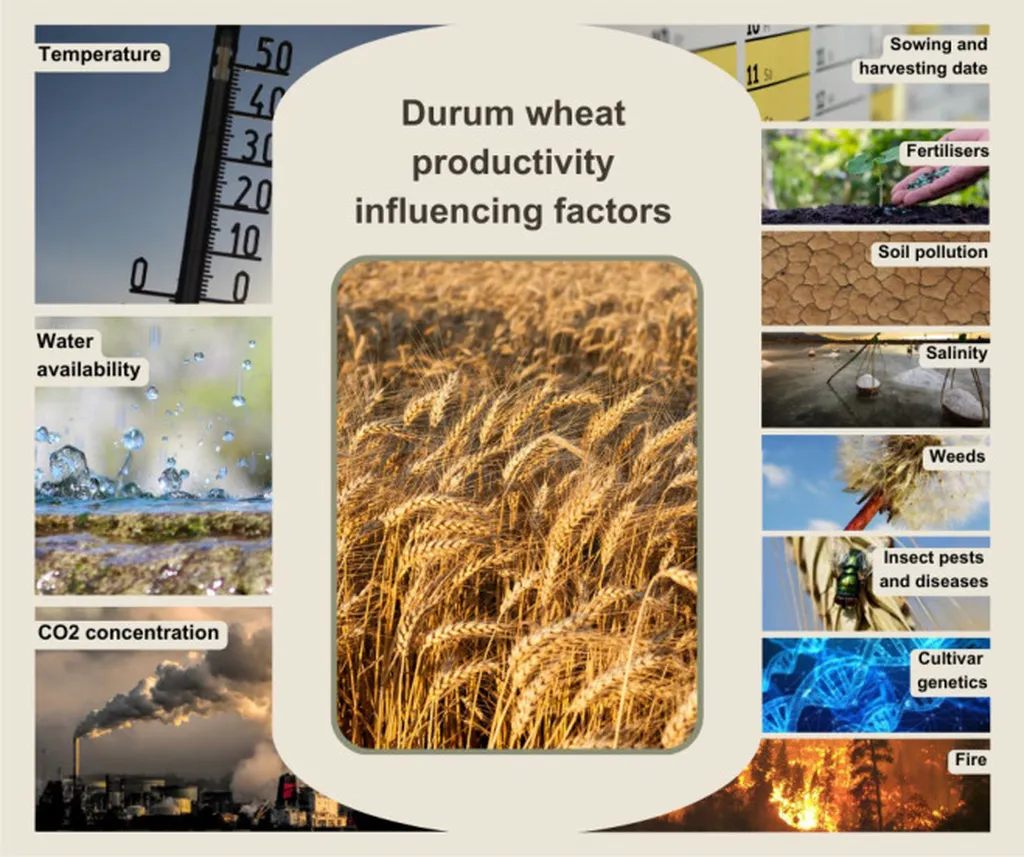In the sun-drenched fields of southern Sardinia, a groundbreaking study is challenging conventional wisdom about water use in agriculture, offering a promising path forward for durum wheat production in drought-prone Mediterranean regions. The research, led by Marino Marrocu of the Center for Advanced Studies, Research and Development in Sardinia (CRS4), integrates deficit irrigation, crop modelling, and the Water–Energy–Food (WEF) nexus to enhance the resilience of durum wheat, a staple crop in the region.
The study, published in *Agricultural Water Management*, evaluated three water regimes over two cropping seasons and across two soil types: full irrigation (I100: 100% of Plant Water Requirement), reduced irrigation (I50: 50% of PWR), and no irrigation (I0: rainfed). The results were striking. Deficit irrigation (I50) improved grain yield by 53.5% compared to rainfed conditions, with full irrigation (I100) yielding an even more substantial 65.4% increase. Most notably, the improvements in grain yield and other traits like protein yield, biomass, and harvest index were comparable between I50 and I100, suggesting that reduced irrigation could achieve similar outcomes without the full water footprint.
“This study demonstrates that deficit irrigation can be a viable strategy for enhancing durum wheat production while conserving water resources,” said Marrocu. “The fact that I50 performed nearly as well as I100 opens up new possibilities for sustainable agriculture in water-scarce regions.”
The research didn’t stop at field trials. It integrated in situ monitoring, remote sensing, and crop modelling using AquaCrop to track soil moisture dynamics and provide data-driven suggestions for irrigation decisions. This comprehensive approach allowed for a detailed WEF analysis, assessing the costs and benefits of deficit irrigation. The analysis confirmed the sustainability of durum wheat irrigation and revealed that the energy use efficiency of I50 was comparable to I100, with I50 even proving more efficient in 2023.
The commercial implications of this research are significant. As water scarcity becomes an increasingly pressing issue in the Mediterranean and beyond, farmers and agribusinesses are seeking sustainable solutions that don’t compromise yield or quality. Deficit irrigation, as demonstrated in this study, offers a practical and effective strategy for balancing water conservation with agricultural productivity. By adopting such practices, farmers can enhance their resilience to drought and climate variability, securing food production and economic stability.
Looking ahead, this research could shape future developments in precision agriculture and sustainable farming practices. The integration of deficit irrigation with advanced monitoring and modelling tools provides a blueprint for optimizing water use in agriculture. As Marino Marrocu and his team at CRS4 continue to explore these avenues, the potential for scaling up these strategies across different crops and regions becomes increasingly apparent.
In a world grappling with the challenges of climate change and resource scarcity, this study offers a beacon of hope for the future of agriculture. By embracing innovative approaches like deficit irrigation and leveraging cutting-edge technology, the agricultural sector can pave the way for a more sustainable and resilient food system.

